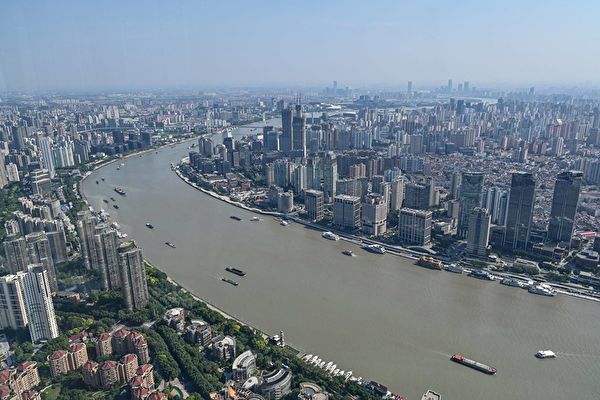In early 2015, astute private entrepreneurs in Beijing sensed a shift in the national economy, with state-owned enterprises expanding while private enterprises retreated. The relatively large private construction contractors in Beijing began seeking new paths to navigate this changing landscape.
Our company held several shareholder meetings and eventually decided on two main directions: either partnering with a state-owned enterprise (allowing for state ownership in the company) or selling the company to a publicly traded entity. In the backdrop of state expansion and private retreat, these were the only viable options for private enterprises to survive. Later, a third option emerged—collaborating with state-owned enterprises to undertake project contracts.
Once the direction was set, the execution was not as smooth. We approached several state-owned enterprises, particularly those controlled by the State-owned Assets Supervision and Administration Commission, but encountered procedural obstacles that hindered further discussions. Unable to proceed with the first option, we turned to the second option of selling to a publicly traded company.
In 2015, we engaged in discussions with a publicly traded company. Auditors and consultants were already conducting investigations, but disagreements over the price-to-earnings ratio and the distribution of equity and cash—whether it should be 40% or 60%—resulted in a deadlock. Eventually, the acquisition fell through, making us a failed case. Left with no choice, we resorted to the third option of collaborating with a state-owned enterprise for project contracts (where the state-owned entity wins the bid, while the actual construction is done by the private enterprise with the state entity receiving management fees and other charges).
This was the situation for our company. However, I am aware of two successful cases of private enterprises being sold off due to the state-led expansion and private retreat policies (due to deep-rooted corruption issues, these cases will not be discussed).
Recently, I had dinner and a chat with one of the shareholders of one of these companies. We discussed the current economic situation in China, and he lamented the arrival of an economic winter.
This company, owned by three shareholders with the second shareholder, “甲,” holding a 20% stake as the second largest shareholder. When the company was sold, a three-year gambling agreement was signed, allowing him to continue as a key executive for three more years upon successful completion. When we met, the shares held by “甲” had already been released for trading, and he had liquidated all his holdings, amassing a personal wealth of approximately 1 billion.
“甲” shared the stories of the other two shareholders in the company. The majority shareholder, “乙”, after selling the company, started a small construction company, which is currently operating at a modest scale. “乙” has relocated to Hainan for retirement, leaving a few long-time employees to manage the company, struggling to stay afloat.
As for the third shareholder, “丙,” his journey is the most striking. Initially owning a first-class construction company, he sold 51% of the company’s equity to a leading publicly traded company in 2015, then invested in the company owned by “甲,” becoming the third largest shareholder. When the company prospered, “丙” sold the remaining 49% stake of his original company, accumulating approximately 1.1 billion RMB. Subsequently, this company was also sold to another publicly traded company, where “丙,” as a minority shareholder, still profited from cash and stocks. In 2023, after the shares were unrestricted, “丙” sold all his shares, amassing a wealth of around 3 billion.
However, shortly before my dinner with “甲,” “丙” approached “甲” for a loan, citing failed investments and financial losses. Despite ventures into real estate and education, “丙” faced setbacks, such as losses due to the pandemic in his tourism business and the collapse of his education training institution following Beijing’s crackdown on educational industries. Before closure, “丙” attempted to sell the company to “甲,” who declined based on prevailing economic uncertainties, advising to maintain a passive stance to safeguard assets.
“甲” declined to lend money to “丙,” illustrating the principle of offering a meal in need but refraining from financial assistance. “甲” expressed that while he could buy a meal for someone in need, lending money was out of the question. We both sighed at the situation.
It’s worth noting that “丙” built his wealth not solely based on his abilities but also due to favorable circumstances. Benefiting from China’s real estate boom in 2003, “丙” rapidly accumulated capital through construction and small real estate ventures, further profiting from the state-led policies of that time. However, failing to adapt to changing economic conditions and policies, he continued expansion using outdated approaches, resulting in a rapid financial collapse. Seeking loans from old acquaintances post-bankruptcy, “丙” found no support. Unable to repay bank loans, “丙” faced restrictions on spending, unable to even ride the high-speed rail, experiencing contrasting fortunes over the years.
Turning back to “甲,” he wisely refrained from investments, opting to engage in financial management with major banks and providing loans to familiar construction entrepreneurs at a 12% interest rate, supported by collateral agreements for short-term loans, ensuring no defaults until 2023. Despite my advice to “甲” to reconsider given the current economic climate, he had already recovered his investments by 2023, adopting a passive stance. While acknowledging the inevitability of this choice, “甲” also deemed it the best decision he could make in such circumstances.

